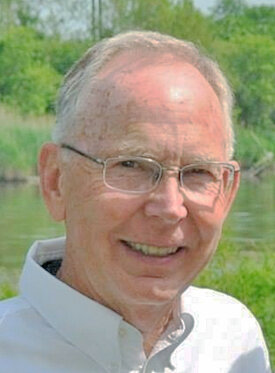Bowden: Who guards the guardians in Delaware?
Bill Bowden is a retired Verizon Delaware executive and past president of the Delaware Quality Award. He also served eight years in state government as the executive director of the Department of Technology and Information. He resides in Ocean View.
In a democracy, the principles of accountability and oversight are paramount. For over 2,500 years, democratic governments have grappled with the question, “Who guards the guardians?” This age-old query underscores the necessity for continuous scrutiny and a balance of power. Delaware, in particular, has both a need and an opportunity to improve this cornerstone of our state governance.
These statements highlight the importance of ensuring that those in positions of authority are subject to oversight, preventing abuse of power and maintaining the integrity of our democracy. By establishing mechanisms for transparency and accountability, democracies strive to protect the rights and freedoms of their citizens, ensuring that power remains in check and governance remains fair and just.
This summer, high-level Delaware government officials have come under scrutiny for not following the law on four separate occasions. These concerns have been widely covered in news outlets across Delaware. The pressing question is: How will these issues be resolved?
In July, accusations surfaced that our lieutenant governor broke campaign finance laws, followed by questionable behavior from our elections commissioner’s office. The campaign finance violation allegations against the lieutenant governor were supported by a scathing report from a forensic audit conducted by a retired FBI chief, hired by Delaware’s elections commissioner. The lieutenant governor vehemently denied these allegations, calling them “unintentional bookkeeping mistakes.” Our attorney general declined to investigate further, and the elections commissioner has not forwarded the investigation to the attorney general. Additionally, emails obtained through a Freedom of Information Act request showed that Lt. Gov. Bethany Hall-Long enlisted her office staff, working with her husband, to handle matters unrelated to her position. If she is innocent, we need to know; if she is guilty, we need to know. Who can bring this to a fair and transparent conclusion? Should an independent deputy attorney general be appointed to complete the investigation? If not, should the legislative branch step in?
Also in July, emails from officials in the Delaware elections commissioner’s office communicated directly with aides in Lt. Gov. Bethany Hall-Long’s office, amid a scandal involving her campaign finance reports. The emails show that elections commissioner Anthony Albence, a fellow Democrat, wanted to keep Hall-Long’s office informed about queries from The Associated Press regarding amendments to years of campaign finance reports in which Hall-Long failed to disclose hundreds of thousands of dollars in loans. Who will investigate this? Does the legislative branch need to oversee the executive branch to ensure a fair and transparent resolution?
In September, the Delaware Public Integrity Commission formally denied a request by the Civic League for New Castle County to investigate whether state agencies created an appearance of impropriety by not disclosing the 2023 embezzlement of the Department of Labor’s Division of Unemployment Insurance trust fund. The civic league concluded that the commission should investigate possible violations of the state code, code of conduct and oaths of office for four state officials, including Delaware’s governor, finance secretary, labor secretary and auditor. If not our Public Integrity Commission, then who? How can this be brought to a fair and transparent conclusion? Does the legislature need to provide oversight for the executive branch?
Also in September, a new report from our Delaware auditor highlighted several issues regarding how some legislators, the lieutenant governor and other high-level officials at Delaware Technical Community College and the University of Delaware are not adhering to Delaware laws preventing state employees from being paid for two positions during the same work period (double dipping). Legislative leaders suggested that, given the findings and narrow scope of the audit, the auditor should look back another 10 years. The ethics committees of both the House of Representatives and Senate need to be engaged.
By publishing this report, the auditor has advanced the process to the second step, where the Public Integrity Commission is to investigate these findings, recoup any overpayments made to these employees and, if necessary, make referrals to our attorney general.
“Ethics Bulletin 009: Dual Positions in Government,” which addresses double dipping, clearly outlines the process and consequences for officials who do not report this double pay. Those interested can view the bulletin online. It appears that the Public Integrity Commission has a lot of work ahead to unravel how these state employees and their employers participated in this. It is possible that thousands, if not tens of thousands, of dollars are involved. It is the responsibility of the Public Integrity Commission to bring this to a timely, fair and transparent conclusion on behalf of the citizens of Delaware.
In conclusion, the recent controversies involving high-level Delaware officials highlight the critical importance of accountability and oversight in a democracy. By addressing these issues head-on and implementing effective mechanisms for transparency, Delaware can strengthen its governance and uphold the principles that are fundamental to a democratic society. The question remains: Who will guard the guardians? The answer lies in our collective commitment to ensuring that power is exercised responsibly and that those in positions of authority are held to the highest standards of integrity and accountability.
Reader reactions, pro or con, are welcomed at civiltalk@iniusa.org.







